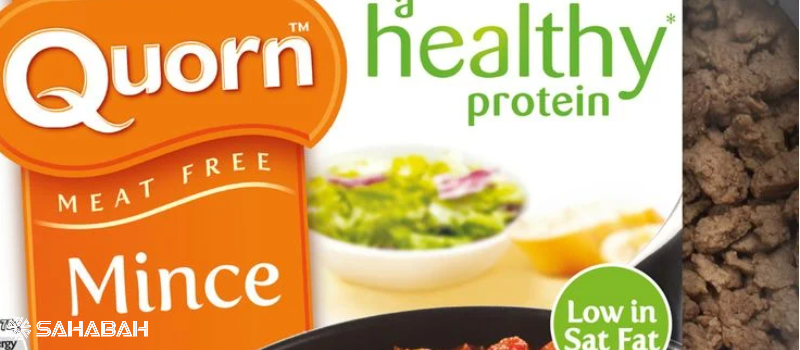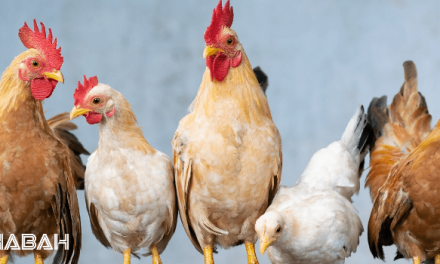Quorn is a popular meat substitute made from mycoprotein, a type of fungus, that is sold widely in the United Kingdom and other countries. But is Quorn halal and allowed on an Islamic diet? Many Muslims wonder if these vegetarian Quorn foods comply with halal standards.
This article will thoroughly analyze Quorn’s ingredients, production processes and certifications to determine if Muslims can eat Quorn under halal dietary restrictions.
Overview of Quorn as a Meat Alternative
Quorn is unique among meat replacements. Rather than deriving from plants like tofu or seitan, Quorn gets its protein from fungus fermented in vats. Specifially, the key ingredient is mycoprotein, which Quorn foods contain at least 13%.
The company categorizes the range of Quorn products like mince, cutlets, burgers and sausages as suitable for vegetarians and vegans. Since it does not contain animal meat or derivatives, many people assume it must be halal. But what about how Quorn foods are made?
Main Halal Considerations for Quorn
For a food to be certified halal:
- It must not contain pork, alcohol or other forbidden ingredients per Islamic law
- Animal slaughter must follow zabihah rituals if present
On paper, Quorn seems to pass. As a meat-free product made from fungus, it avoids forbidden animal ingredients like pork.
But further halal concerns come from:
- Use of fermentation and non-animal based enzymes
- Lack of definitive halal certification
So to determine if Muslims can eat Quorn, we must explore its production process and certification in more detail.
A variety of Quorn’s meat-free products
Analysis of Quorn’s Manufacturing Process
A common question is “Is Quorn made in a halal way?” To produce Quorn:
- Mycoprotein is derived through a natural fermentation process using the Fusarium venenatum fungus
- Non-animal rennet and enzymes are used for development
- Manufacturing equipment is closely monitored for contamination
The use of the Fusarium venenatum fungus and microbial enzymes should generally comply with Islamic dietary laws. But some ambiguity remains over the development process:
[block:pullquote] The majority of Islamic scholars permit microbial rennet and enzymes from halal-approved ingredients. But a few still advise caution pending further certifications of Quorn’s unique mycoprotein method.
To expand production capacity, Quorn has disclosed these details about its “halal-friendly” production methods. But the novelty of using mycoprotein leaves concerns for some Muslims if robust certification is lacking.
A Look at Quorn’s Official Certifications
Beyond its vegetarian-friendly assurances, what proof exists that Quorn is halal?
Quorn holds certification from the Vegetarian Society for its products distributed in the United Kingdom and Europe. This legally approves it as free of meat or animal contents across its whole range.
[block:html]
| Quorn Product Lines | Vegetarian Society Approved |
|---|---|
| Mince | Yes |
| Cutlets | Yes |
| Burgers | Yes |
| Pieces | Yes |
| Fillets | Yes |
Vegetarian Society approval indicates Quorn is meat-free
Some online rumors also claimed Quorn was “halal certified.” But the company has clarified this is incorrect. As mycoprotein is novel, Quorn shared there are not yet robust certification models to verify if its methods meet halal production standards.
This indicates while Quorn’s products do not contain animal ingredients, its manufacturing processes cannot yet be 100% confirmed as halal.
Quorn’s Stance on Halal Compliance
In 2010, Islamic scholar Yusuf Sacha of the Institute of Islamic Jurisprudence inspected a Quorn production facility.
He concluded then that Quorn foods should be “halal suitable” for Muslim diets, barring any changes to ingredients or processes
Yusuf Sacha tentatively approved Quorn pending further certifications
But since this review, Quorn holds no active halal certification. It maintains its stance that while approved for vegetarian diets, it cannot make definitive halal claims about its production methods.
In their public halal FAQ, Quorn affirms their products and ingredients continue to meet 2010 standards. But they defer customers to seek religious guidance around the use of microbial enzymes.
So is Quorn halal? Most experts permit it within an Islamic diet, but advise Muslims to exercise personal religious judgement. Some opt to avoid Quorn pending more authoritative rulings from halal bodies, whereas others more liberally consume these meat alternatives.
The Grey Area in Quorn’s Halal Status
In summary, here is the final verdict on whether Quorn is definitively halal:
- As a mycoprotein-based meat substitute, Quorn contains no animal products or alcohol that would violate Islamic law
- However, its use of Fusarium venenatum fungal fermentation introduces possible ambiguity around halal permissibility
- An ingredient and process review in 2010 tentatively designated it as “halal suitable” pending further certifications
- But today, no major halal certification body has yet issued official approval or denial of Quorn’s current manufacturing processes
So while many Muslim consumers enjoy Quorn without major concerns over its acceptability, Quorn’s halal compliance remains officially unresolved from religious authorities.
[block:callout] To determine your personal or institutional consumption, research contemporary scholarly perspectives on Quorn, fungal enzymes and other alternative proteins regarding halal standards. And always defer to your preferred religious officials for a ruling to guide your diet or purchasing. [/block:callout]
Weighing Opinions on Whether Muslims Can Eat Quorn
With the limited information available, Islamic opinions vary on Quorn’s halal suitability for Muslim diets:
Permitted – Some authorities permit Quorn by default since mycoprotein derives from a vegetarian source. They state that while certification provides assurance, lack of approval does not conclusively indicate it violates Islamic law.
Caution – Other experts advise Muslims use personal discretion. They highlight that Quorn cannot guarantee its production methods meet halal standards, leaving its status unclear.
Forbidden – A minority suggest Muslims avoid Quorn entirely pending authoritative halal approval, believing inadequate certification proves potential underlying non-compliance.
So Muslim consumers must balance these perspectives against their personal standards and level of permissibility.
Conclusion – Quorn’s Halal Future Remains Unclear
In summary, this analysis reveals Quorn’s halal qualifications remain ambiguous:
- Its lack of animal ingredients earns vegetarian certification
- But its novelty means major halal bodies have yet to substantively review its manufacturing processes involving fungal fermentation enzymes
- Conflicting interpretations on mycoprotein leave individual Muslims choosing between permissible, cautious and prohibitive stances on incorporating Quorn products into their diets
Quorn maintains internal confidence that its production methods meet the essence of halal standards through avoiding cross-contamination and use of approved ingredients.
Yet without formal decrees from halal authorities, most experts feel Muslims should personally evaluate both scholarly debate and their religious convictions to decide if Quorn has a place on Islamic dietary tables.
Frequently Asked Questions – Is Quorn halal?
Quorn products are halal-certified in the United Kingdom by Quorn. They are free from any haram (forbidden by Islam) ingredients, making them permissible for consumption according to Islamic dietary laws.
What is Quorn and is it a vegetarian product?
Quorn is a meat substitute made from a fungus-based protein called mycoprotein. It is vegetarian and is suitable for those following a vegetarian diet.
How can I check if a specific Quorn product is halal?
You can contact Quorn directly to inquire about the halal status of a specific product. They can provide information on whether the product is halal-certified and suitable for consumption according to Islamic dietary laws.
Is Quorn mince halal?
Quorn mince and other Quorn products are halal-certified, ensuring that they conform to the guidelines and requirements for halal food consumption.
Are Quorn products approved by any halal certification bodies?
Quorn products are certified as halal by reputable organizations, including Yusuf Sacha and other halal certification bodies, ensuring that they meet the necessary standards for halal consumption.
Do Quorn products contain any animal derivatives?
Quorn products do not contain any animal products or derivatives, making them suitable for individuals following a vegetarian or halal diet.
How can I reach out to Quorn to inquire about the halal status of their products?
You can contact Quorn through their official website or via email to inquire about the halal certification of their products. They will provide guidance and information regarding the halal status of their offerings.
Can Quorn products be considered as halal meat substitutes?
Quorn products are suitable as halal meat substitutes as they are meat-free and do not contain any non-halal ingredients, meeting the requirements for halal consumption.
Are frozen Quorn products also halal?
Yes, frozen Quorn products are halal-certified, ensuring that they adhere to the halal guidelines for food consumption.
How can I ensure that Quorn products I buy are halal?
The best way to ensure that the Quorn products you purchase are halal is to look for the halal certification symbol on the packaging. This indicates that the product has been certified as halal and is suitable for consumption according to Islamic dietary laws.
Have you come to a conclusion about Quorn’s halal status for your needs? Let me know your thoughts in the comments!





